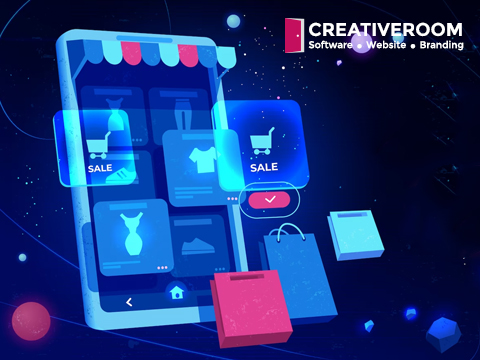- Have any questions?
- +91-98158-34243
- +91-98888-58343
- info@creativeroom.in
Laravel Vs Other PHP Frameworks: Choosing the right one for your project

Factors to Note while comparing with Prominent PHP Frameworks
1) Symfony: Symfony is a mature and highly flexible PHP framework. It emphasizes reusable components and follows the MVC (Model-View-Controller) architectural pattern. Symfony provides a solid foundation for large-scale applications and offers great flexibility in terms of customization. It has a vibrant community and a wide range of libraries and bundles available. However, Symfony can be more complex and require a steeper learning curve compared to Laravel.
2) CodeIgniter: CodeIgniter is a lightweight PHP framework designed for simplicity and speed. It has a small footprint, making it suitable for shared hosting environments. CodeIgniter focuses on minimal configuration and provides a straightforward structure, making it an excellent choice for small to medium-sized projects. However, it has a smaller community compared to Laravel or Symfony.
3) Yii: Yii is a high-performance PHP framework that emphasizes performance, security, and extensibility. It has a component-based architecture and provides features like caching, authentication, and RESTful API development out of the box. Yii is suitable for large-scale applications and has good documentation and an active community.
4) Zend Framework: Zend Framework, now called Laminas Project, is a powerful PHP framework that follows the SOLID principles. It offers a collection of loosely coupled components that can be used independently. Zend Framework provides extensive customization options and is suitable for complex enterprise applications. However, it has a steeper learning curve compared to Laravel and may require more advanced PHP knowledge.
5) CakePHP: CakePHP is a straightforward and easy-to-use PHP framework that follows the convention-over-configuration principle. It provides a robust set of features for rapid application development, including scaffolding, ORM, and built-in security features. CakePHP is a good choice for small to medium-sized projects with tight deadlines.
In summary, here are some considerations:
6) Laravel: Great for small to large-scale projects, emphasizes simplicity, expressive syntax, and developer productivity. It has a large and active community with extensive documentation.
7) Symfony: Ideal for large-scale projects requiring high performance and flexibility. It has a modular architecture and offers a wide range of reusable components.
8) CodeIgniter: Lightweight framework suitable for small to medium-sized projects, with minimal configuration and a small footprint.
9) Yii: High-performance framework emphasizing security and extensibility, suitable for large-scale applications.
10) Zend Framework: Powerful framework for complex enterprise applications, with extensive customization options and loosely coupled components.
11) CakePHP: Easy-to-use framework for rapid application development, suitable for small to medium-sized projects.
Ultimately, the choice depends on your project requirements, development team's expertise, and your personal preferences. Consider the strengths and weaknesses of each framework and choose the one that aligns best with your needs.




